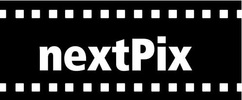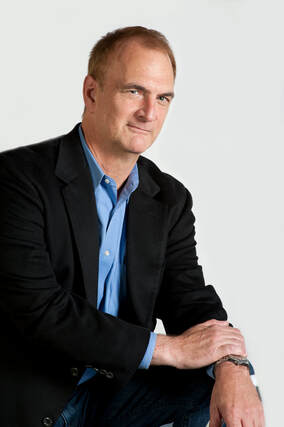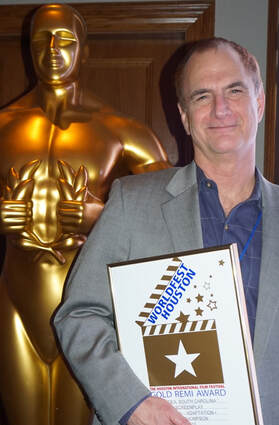About Don Thompson
Known throughout the 80's and 90's as a playwright, more recently Don has made his mark as an award-winning filmmaker, producer, and screenwriter. Since 2000, Don has produced, co-produced, or co-funded over thirty feature films through his production company nextPix, including the Sundance award-winning documentary TIBET IN SONG (2009), Hal Hartley's NED RIFLE (2014), as well as the internationally acclaimed films RAILWAY CHILDREN (2016) and YOMEDDINE (2018). Films Don has been affiliated with as a producer have premiered and won awards at festivals such as Sundance, Toronto, Cannes, Berlin, and numerous others. Since 2017, his screenplays have also received recognition and awards, including at the New York Movie Awards, Worldfest Houston, ISA Fasttrack (Top 50), Filmmatic Screenplay Awards, New York Screenplay Contest, Los Angeles Film Awards, and the Festigious International Film Festival. His screenplay adaptation of Herman Melville’s novella ‘Billy Budd’ won a Silver Award for Feature Screenplay at the New York Movie Awards.
For you, what is the absolute ingredient of a good screenwriter?
I believe a screenwriter needs to reflect some level of humanity in their work. That means their characters should be three-dimensional and have some sense of grounded reality. Also, I believe a good screenwriter knows how to convey what the Greeks called ‘catharsis’. That’s the emotional payoff for the audience from a film that a good screenwriter should deliver. For me, it's the emotional journey of a screenplay that's the most important.
What is your first and last film crush?
What got me interested in movies when I was young was independent films. So I would say my first film crush was the Nuart theater in Los Angeles where I would go to watch foreign films and indie films with my brothers and friends. That inspired me to want to go to film school at UCLA. My latest film crush is the streaming channel for the Criterion Collection. Many of the great art films of the past and present are on Criterion. It’s a great education in classic filmmaking.
How old you were when you decided you wanted to be a screenwriter?
I’ve always loved to write, even since I was a teenager. The first screenplay I wrote was when I was about eighteen. It was actually a pretty funny script. My Dad was my editor, and he was a very tough critic – but he did believe I was a good writer. At any rate, watching the early Woody Allen movies (like ‘Annie Hall’) really made me want to become a screenwriter because his films were always well-written and funny. Also, the film ‘The Graduate’ really inspired me. Again, a great script by Buck Henry based on the book by Charles Webb. The film starred Dustin Hoffman and was directed by Mike Nichols. Another early film I loved was ‘Harold and Maude’ by Colin Higgins. Yet another great script – also a very funny and yet touching movie. Ruth Gordon was terrific in that film. All of these films inspired me to want to write.
What is a good film for you?
A good film to me conveys the human experience in a way that is enlightening and speaks to the human condition. I’m not generally very interested in films about superheroes or monsters or things that aren’t human. I believe people on this Earth need artists to help them understand what being a human being means, to grapple with that question. Maybe that is a little arrogant but that is the way I feel. I believe the artist has a mission to help humanize the world. We have plenty of dehumanization going around in terms of inequality, poverty, oppression, and racism. Artists, in my mind, should speak to those kinds of issues.
What do you feel when you're writing?
I love being absorbed in the creative process. When that happens, I forget myself completely. It’s as if I disappear, in a sense. I go away and something else appears: the art.
Let’s assume you can go to the Movies with any director that you love. What kind of movie do you choose and with who do you want to watch it with?
I would go to watch a great epic film such as ‘Lawrence of Arabia’. And I would go with Ridley Scott – who is a modern director with an understanding of what an epic is and can be. He is also a genius – so it would be interesting to hear what he has to say about ‘Lawrence of Arabia’.
Audrey Hepburn used to say, “Nothing is Impossible”, what do you think about that statement?
I do believe that. I believe that our greatest limitation as people is our own limited thinking. If we open up our thinking to new realms and new possibilities, anything is possible. People – even humanity in general – are in many ways stuck in old patterns of thinking and believe there is only one way people can and should behave. But I don’t believe this at all. I believe what Audrey said – that nothing is impossible.
Can you live just a life devoted to your passion?
Making a living while living your passion is a challenge – but not impossible. You have to be persistent, a little talented, and pretty clever.
What's more important talent or luck?
Both are important, I feel. Luck is really, I believe, good intuition. Or you could say good taste. As a producer, I’ve had some luck picking good projects that have gone on to gain recognition and awards. This is more instinct and intuition and taste than luck – although you could call it luck. Talent is important, but also subjective. People have various tastes and a talented person to one person might be mediocre to another. Also, commerciality is often translated in this country as talent – in other words, do your projects make money? If yes, you are considered talented. That said, art does not always make money. Particularly art that is groundbreaking. But in this country, the greatest sin is to lose money. This at times makes creating art problematic.
You must go to a desert island what would be the one movie you would bring with you?
‘Lawrence of Arabia’ – perhaps the greatest film of all time. Or maybe ‘The Bridge over the River Kwai’. Both directed by David Lean.
Have you ever accepted a script assignment when you didn’t like the project?
I have written screenplays on assignment where I didn’t always feel totally great about the source material that I was provided to translate into a finished script. But I like the challenge of working with something and adding my own perspective to it and hopefully creating something wonderful. That’s my goal when working on assignment for me. That’s my responsibility. To make something wonderful no matter what the circumstances. But screenwriting on assignment is collaborative, and you need to compromise. Hopefully, at the end of the process, you can still live with the final product.
What's the best compliment you have received about your work?
The best compliment is when people laugh or cry when experiencing your work. As a playwright, I’ve had a few experiences like that. I might hear secondhand about people really being moved by the work and that is really gratifying. Screenwriting – unless the script makes it to production – has been a little bit of a harder path as fewer of my screenplays have made it to production than my plays. So, I may never get a full sense of how an audience would react. As with a play, when one of my screenplays is produced as a film, it is very gratifying when people are moved and express that. It makes all the effort worth it.
Are you satisfied with your career?
I’m happy that I’ve done some good work. I feel I could do a lot more. Also, I feel I could do higher-budget films successfully. Most of my projects have been lower-budget, independent films. I’d like to work at a higher budget level and be successful at that – in other words, to make films that are successful both artistically and commercially.
Do you have a good luck charm?
My good luck charm is my wife, Diana. We’ve been married for a long time, and she is incredibly supportive.
Which was your worst moment on set?
Having to fire an actor during production and replace them quickly. It was a nightmare but somehow, we survived.
How do you feel when a job you've been part of is ending?
If the job is well done, I feel really good. If not, I don’t feel so good and somehow wish I could re-do what was not done as well as it could have been. The lesson is to always try to do your best in the moment. Don’t let it down. Don’t feel you can fix it later. Fix it now. That is my advice.
If you should win an Oscar your first thought would go to…
My mother. She was the one who got me interested in movies as a kid. So, I suppose she was really my first movie crush – not going to the Nuart theater (that was later). She would take all of her kids to the theater and watch the latest big movie. She loved movies and she taught me to love them. She is the primary reason I wanted to get involved in movies in the first place. I miss her.
You can find the full interview link here.
Proudly powered by Weebly




